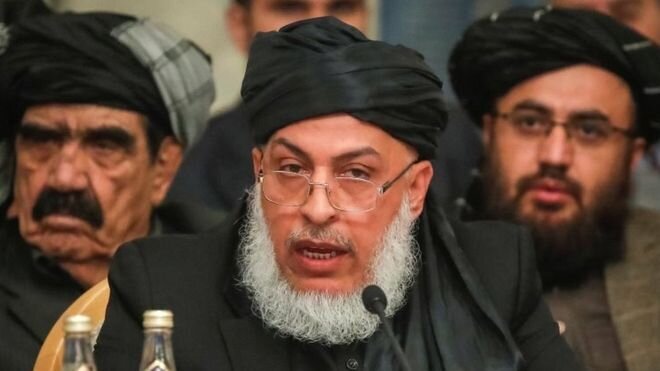Farzad Ramezani Boonesh, in an interview with the website of the Strategic Council on Foreign Relations, referred to the remarks of the spokesman of the President of Afghanistan regarding the possibility of starting peace talks between Afghans in July: “One of the goals of the US-Taliban talks last year and the agreement reached was to provide the platform for the Taliban to reach a fundamental and structural deal with other major currents and political parties in Afghanistan and come out of the role of a political-military opposition, and by being part of the power, lead the political and security atmosphere in Afghanistan towards stability and peace.
Taliban Have to Deal with Major Ruling Currents in Kabul
He added: “But at least in the last six months, various political, security and legal challenges have surfaced in the way of establishing a kind of inter-Afghan dialogue between the Taliban and the former national unity government, as well as the current inclusive government of Afghanistan; It should be noted, however, that the Taliban now have to deal with the main currents in Kabul, the two main factions of the government in Afghanistan, which themselves have allies. In another dimension the Taliban seem to have a number of maximum demands and claims which they try to accomplish by using the negotiation process with the government of Afghanistan.
The Afghan analyst stressed that the incumbent government does not want the governance structure and the constitution and various other major issues in Afghanistan to be maximally affected by the Taliban presence in power: “It seems that the government is willing to recognize Taliban’s share of power in Kabul and turn them from military to political current; But this share does not seem to be big.
Challenges Facing the Taliban
Ramezani added: “The Taliban have more demands than what is considered as their share of power; Topics such as the Islamic Emirate and the future name of the Afghan government, the constitution, Islamic regulations and the views of various currents on this issue, civil liberties, outlooks about the minorities, as well as Taliban’s relationship with other extremist and terrorist movements in Afghanistan such as ISIS and al-Qaeda , Along with the kind of share they will have in power in the future, is somehow open to challenge and debate.
No Comprehensive Agreement between Taliban & government in Short Term
Stressing that the challenges facing both sides have made it very difficult to reach an immediate result, he said: “At the same time, the process of dialogue between the Afghans and the future of these talks does not look bleak, but certainly in the short term we see a comprehensive agreement between the Taliban and the government of Afghanistan; Rather, we should wait for the negotiation process to reduce the volume of disputes a little bit and bring them into the process of reaching an agreement that can shape the principles and provisions of the fundamental agreement in the future.
Referring to the challenges facing the inter-Afghan talks, Ramezani continued: “It seems that the process of internal developments in Afghanistan, as well as the views of regional and international actors and other demands in Afghan civil society, will force the Taliban and the incumbent government to accept these talks.” But the extent to which the two sides fall short of their demands is questionable, as there is no prospect of reaching an agreement in the short term.
Taliban Not in a Position to Shy away from Dialogue
He added: “However, with the advancement of the negotiation process, the two sides, while getting acquainted with the views, will be forced to reach agreements on macroeconomic, political and security issues inside Afghanistan.” Because, in practice, the Taliban are not in a position to avoid dialogue based on the approaches and demands of the past two decades.”
“One of the most important reasons for the continuation of the Taliban approaches in Afghanistan is the presence of the Americans and the West in this country, and with the agreement reached between the US and the Taliban, we will gradually face the withdrawal of NATO and US troops. Although some of these forces may remain in the country, the Taliban are not in a position to actually advance their former maximum and 100% demands and call for a unilateral government.”
Referring to the role of regional powers and the negotiations they have had with the Taliban in recent months, he said: “In the past few years, the Taliban have somehow tried to establish more contact with regional and international actors. This is the cornerstone of the peace process and dialogue with the government, as most regional and international actors support the Taliban-government dialogue process, and even issues such as mediation have been pursued.
Referring to the meeting between the Iranian representative in Afghanistan and the Taliban’s political deputy, Ramezani added: “The Taliban and the Afghan government have a positive view of Iran’s efforts to reach an agreement between the two sides. In this regard, Iran has the capacity as a mediator to bring the views of the Taliban and the government closer together and to assist in the negotiation process.”










0 Comments